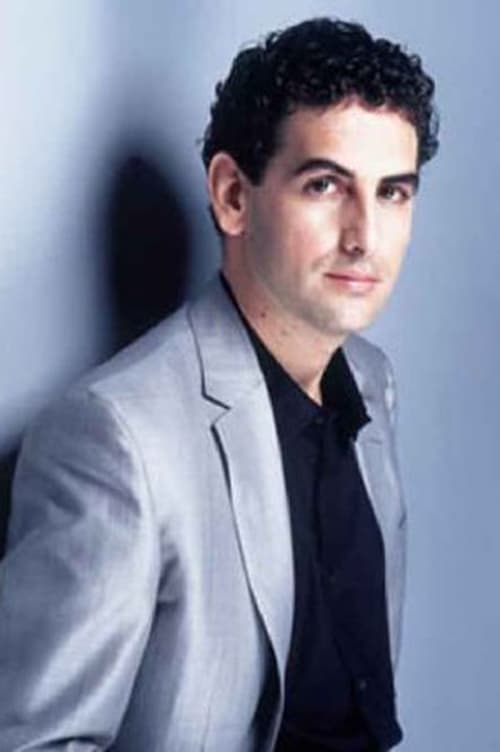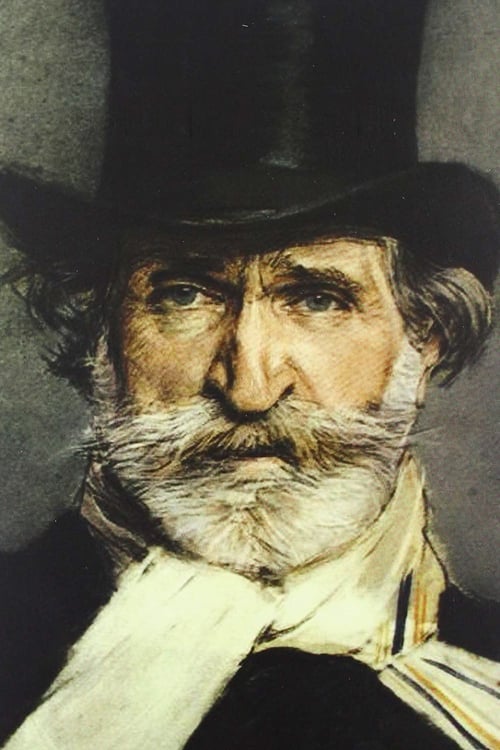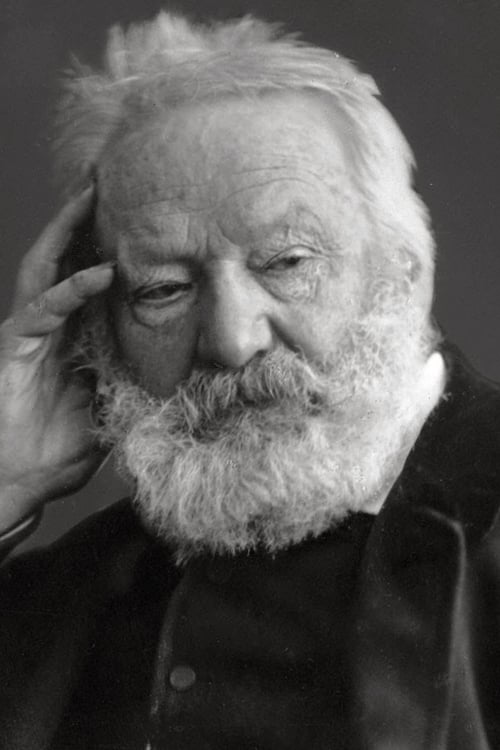Rigoletto - Semperoper Dresden (2008)
Rigoletto (2008) Staatsoper Dresden. Verdi / Italian
장르 : 음악
상영시간 : 1시간 58분
연출 : Nikolaus Lehnhoff, Andreas Morell
시놉시스
Both Florez and Diana Damrau brought their bel canto expertise and superb vocalism to the service of Verdi's music. The Rigoletto, Zeljko Lucic, ran the gamut from tenderness with his Gilda to thundering fury with everyone else. I also liked the production. At first, when Rigoletto was putting on his grease paint during the overture, I was afraid that it might be a typical "Euro-trash" production, with a bit of warmed over I Pagliacci. But the sets and dramatic action really served the music and libretto. I would have to say that I came to a deeper understanding and appreciation of the story and characters as a result of seeing this performance.
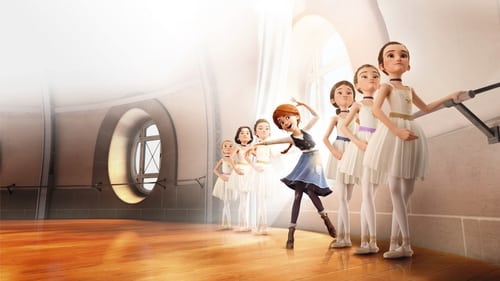
작은 시골 마을에 살고 있는 고아 소녀 펠리시 와 그녀의 소꿉친구 빅터. 그들의 꿈은 최고의 발레리나와 발명가가 되는 것이다. 두 사람은 자신의 꿈을 이루기 위해 다소 황당무계해 보이는 계획을 실천한다. 바로 빛의 도시 파리를 향해 여행을 떠나는 것. 센느강, 에펠탑, 자유의 여신상, 최고의 무대인 오페라 하우스까지.. 화려하고 아름다운 파리의 모습은 그들의 꿈을 향한 열망을 더욱 뜨겁게 하는데.
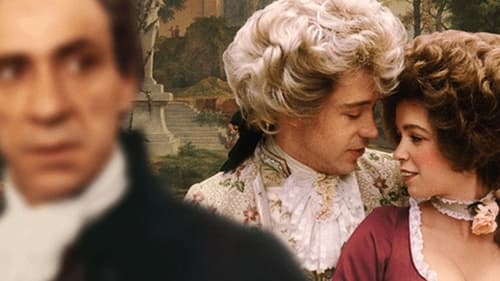
1823년 눈보라치는 밤, 한 노인이 자살을 시도하다 실패하고 신부에게 자신의 죄를 고백한다. 비엔나 왕실의 궁정음악가 살리에리는 새롭게 떠오르는 천재 작곡가 모차르트의 소문을 듣고 그의 천재성을 확인하려 한다. 모차르트가 그의 약혼녀를 범하고 오만하고 방탕한 생활을 거듭하자 그러한 모차르트에게 천재성을 부여한 신을 저주하고 그를 증오하기 시작한다. 한편 빈곤과 병마로 시달리던 모차르트는 자신이 존경하던 아버지의 죽음에 커다란 충격을 받고 자책감에 시달린다. 살리에리는 이를 이용해 모차르트가 아버지의 환상에 시달리도록 하면서 진혼곡의 작곡을 부탁하는데...
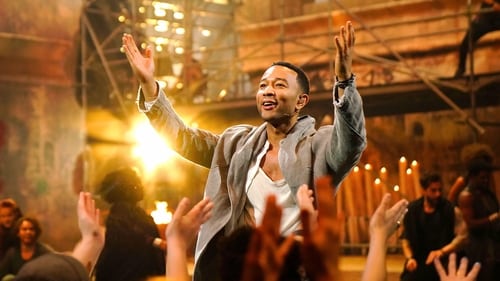
The award-winning show is re-imagined as a live concert event, featuring an all-star cast of recording artists, set during the last week of Jesus' life as he deals with betrayal, love and jealousy, and told from the perspective of Judas.

세상에서 누구보다 노래를 좋아하지만 자신이 음치인 줄 모르는 귀여운 음치 소프라노 플로렌스 그녀의 남편이자 플로렌스가 공연을 할 때마다 악평을 막느라 바쁜 사고 전담 매니저 베이필드 플로렌스의 노래에 충격을 받았지만 어느새 피아노를 치고 있는 음치 맞춤형 연주자 맥문 플로렌스는 자신감 하나로 세계 최고의 무대인 카네기홀 공연을 선언하고, 그녀의 어마어마한 도전 앞에 베이필드와 맥문은 새로운 미션을 맞닥뜨리게 되는데… 과연 이들은 무사히, 성공적으로 공연을 치를 수 있을까?
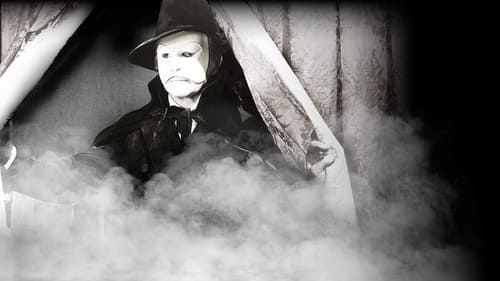
파리의 오페라 하우스. 극단의 소프라노 단원인 아름다운 여인 크리스틴은 뛰어난 재능에도 불구하고 빛을 보지 못하는 조연이다. 또한 그녀를 지켜보며 안타까운 연정을 키워나가는 바이올린 주자이자 작곡가인 에릭은 자신의 음악을 인정받기 위해 출판사와 극장 등 여러 곳을 찾아가지만 차가운 냉대뿐인데.

1941년, 나치 점령하의 프랑스. 임무를 수행하고 돌아가던 영국 공군의 비행기가 독일군 대공포를 맞아 추락한다. 영국군 조종사 레지널드, 피터, 앨런은 낙하산을 타고 간신히 탈출해 목숨을 건진다. 셋은 도장업자 오귀스탱, 인형극을 하는 쥘리에트, 오케스트라 지휘자 스타니슬라스의 도움을 받게 되는데, 독일군 장교 아흐바흐는 이들을 붙잡기 위해 추격을 멈추지 않는다. 나치 점령기를 배경으로 한 코미디로, 오랜 세월 동안 깨지지 않은 흥행 기록을 세우기도 했다.
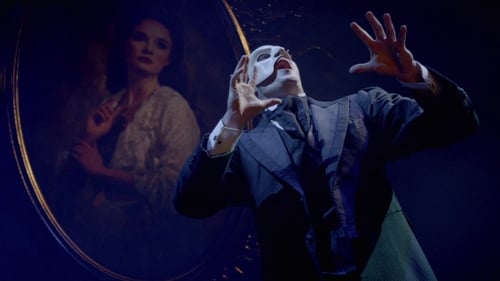
파리의 오페라 하우스에서 자취를 감췄던 팬텀. 10년이 지난 지금 코니 아일랜드에 크리스틴을 초대하고 그녀는 남편 라울, 아들 구스타프와 함께 팬텀의 세계에 오게 된다. 그 곳에서 다시 한번 영원한 사랑을 고백하는 팬텀과 갈등하는 크리스틴, 그녀를 빼앗길 수 없는 라울, 그리고 팬텀을 오랫동안 남몰래 사랑해온 멕 지리.. 펜텀은 크리스틴에게 새로운 노래 'LOVE NEVER DIES'를 건네주고, 그녀가 무대에 서며 팬텀의 사랑을 받아 들일 것인지 무대를 떠나 라울을 선택할 것인지, 지금 그들의 사랑은 다시 한번 선택 앞에 놓이게 되는데.. ‘오페라의 유령’ 그 후의 감춰졌던 이야기가 스크린에서 생생하게 펼쳐진다!
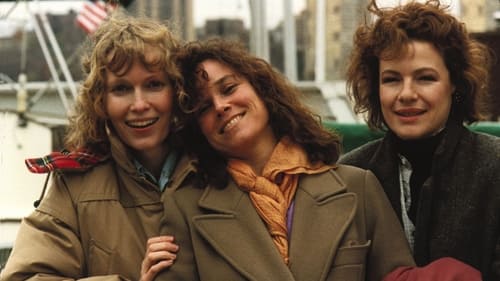
세 자매 중에 첫째가 한나, 둘째가 홀리, 막내가 리다. 한나는 록스타의 매니저인 엘리엇와 결혼했고, 리는 미술을 하는 중년남자와 동거 중이다. 그런데 한나의 남편 엘리엇은 처제인 리에게 묘한 감정을 느낀다. 결국 리와 엘리엇은 관계를 가지게 되고 엘리엇은 죄책감을 갖는다. 한편 홀리는 텔레비젼 프로듀서인 미키와 사랑에 빠지게 된다.
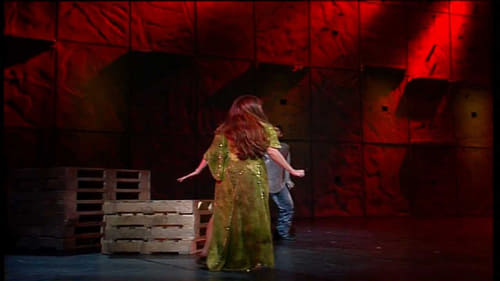
A musical adaptation of Victor Hugo's novel "Notre Dame de Paris" which follows the gypsy dancer Esmeralda and the three men who vie for her love: the kind hunchback Quadimodo, the twisted priest Frollo, and the unfaithful soldier Phoebus.
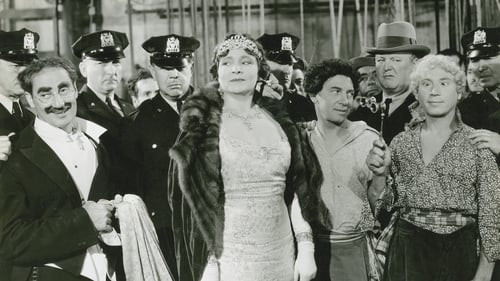
촉망받는 소프라노 로자와 아직 데뷔하지 못한 그녀의 애인 리카르도, 그리고 로자를 빼앗으려는 허영심 많은 성공한 테너 로돌포 사이의 삼각관계를 그린다. 식은 죽 먹기(Duck Soup)의 흥행 참패 이후 2년간 작품 활동이 없었던 막스 형제에게 MGM의 프로듀서 어빙 탈버그가 함께 작업할 것을 제안하면서 제작한 첫 번째 작품이자 막스 형제의 출연작 중 가장 높은 수익을 기록한 작품이기도 하다. 막스 형제는 염세적인 성향의 무정부주의자였다고 알려져 있는데, 이런 성향 때문인지 파라마운트에서 제작했던 초기 작품들은 다소 거칠고 엉성하지만, 그들만의 염세적인 세계관이 잘 드러난다고 평가받는다. 반면 MGM으로 이적 후 제작된 작품은 잘 짜인 플롯에 상황마다 적절한 위트가 배치된 대중적인 작품으로 흥행에서 큰 성공을 거두었다. 록그룹 퀸은 1975년에 동명의 앨범을 발표했으며, 다음 해인 76년에도 막스 형제의 출연작 중 하나인 경마장의 하루(A Day at the Races)라는 이름의 앨범을 발표해 막스 형제가 영화계뿐만 아니라 문화계에 미친 영향을 확인할 수 있다.
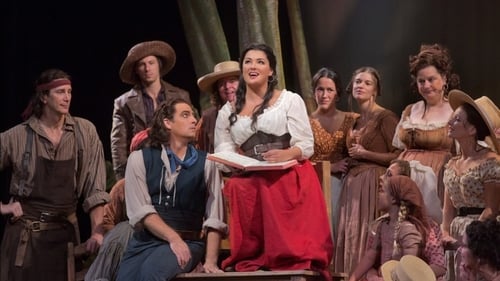
Anna Netrebko as the beautiful and wealthy Adina leads the cast in Barlett Sher’s production of Donizetti’s charming comedy, first seen on Opening Night of the Met’s 2012–13 season. Matthew Polenzani is Nemorino, the poor but good-hearted country boy who wins her love—with the help of the magic “elixir” sold by the quack Dulcamara, played by Ambrogio Maestri. Mariusz Kwiecien is the swaggering Sergeant Belcore and Maurizio Benini conducts.
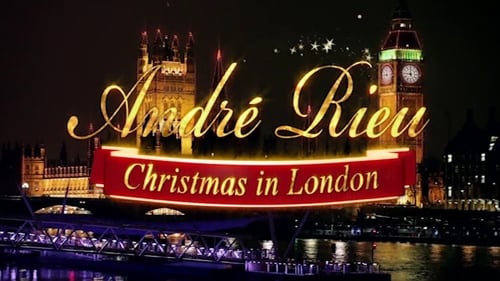
Christmas is now more beautiful and cosy than ever! Experience Christmas in London, together with André Rieu. Decorated Christmas trees everywhere you look, beautifully lit streets, tempting Christmas window displays... Combine the unique London Christmas atmosphere with a magnificent Christmas concert by André Rieu, and you have all the ingredients for a lovely party in the dark December days. Together with fantastic soloists and his always joyful Johann Strauss orchestra, André Rieu provides a fabulous evening with the most beautiful and moving Christmas carols, but also with emotional songs such as Leonard Cohen's Hallelujah, The Holy City and the classic Concierto de Aranjuez. Christmas in London means an evening enjoying lovely music, beautiful costumes and plenty of London cosiness.

La traviata (Italian: [la traˈviaːta], "The Fallen Woman"[1][2]) is an opera in three acts by Giuseppe Verdi set to an Italian libretto by Francesco Maria Piave. It is based on La dame aux Camélias (1852), a play adapted from the novel by Alexandre Dumas, fils. The opera was originally entitled Violetta, after the main character. It was first performed on 6 March 1853 at the La Fenice opera house in Venice. Piave and Verdi wanted to follow Dumas in giving the opera a contemporary setting, but the authorities at La Fenice insisted that it be set in the past, "c. 1700". It was not until the 1880s that the composer and librettist's original wishes were carried out and "realistic" productions were staged.[3]
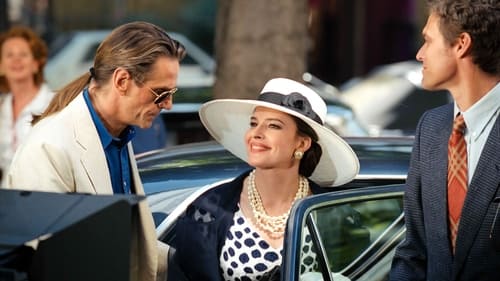
20세기 최고의 오페라 가수로 꼽히는 천상의 목소리 '디바' 마리아 칼라스(화니 아르당 분). 세기의 스캔들로 전세계를 떠들썩하게 했던 선박왕 오나시스와의 사랑도, 그토록 아름다웠던 자신의 목소리까지 모두 세월 속에 묻어버린 채 남은 여생을 은둔하며 지내려 한다. 이때 그녀 앞에 나타난 오랜 친구이자 공연기획자인 래리(제레미 아이언스 분)는 그녀의 예술성과 천재성을 다시 한번 세상에 되돌려 놓기 위해 놀라운 제안을 한다. 바로 현대과학의 기술로 그녀 전성기 때의 목소리를 되살려 오페라 영화를 제작하자는 것. 절대 노래하지 않겠다고 결심한 그녀는 단호히 제의를 거절하나 집요한 래리의 설득 아래 다시는 기억하고 싶지 않은 마지막 공연실황에 젊은 시절 목소리를 덧입힌 편집본을 본 순간, 다시금 노래에 대한 전율이 되살아나면서 그의 제안을 수락하기에 이른다. 영화화 될 작품은 불후의 명작 오페라<카르멘>. 그녀는 지난 사랑의 아픔과 예술에 대한 정열을 다시 한번 매혹의 집시여인 '카르멘'이 되어 쏟아내기 시작한다. 칼라스의 절친한 친구이자 베테랑 저널리스트인 새라(조안 플로라이트 분)도 진실된 마음으로 그녀가 재기할 수 있도록 조언을 아끼지 않고 기꺼이 그녀를 돕는다. 그녀를 잊지 않은 팬들과 관계자들의 성원에 힘입어 작품은 완성되고 성공적인 평가를 받게 되는 칼라스. 기획자인 래리는 더없이 만족하며 차기작을 운운하지만 성공의 기쁨도 잠시, 칼라스는 정직하지 못한 예술작품이란 생각에 또 한번의 고비를 맞는다.
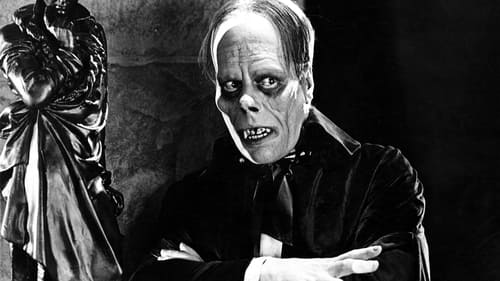
A grotesquely disfigured composer known as "The Phantom" haunts Paris' opera house, where he's secretly grooming Christine Daae to be an opera diva. Luring her to his remote underground lair, The Phantom declares his love. But Christine loves Raoul de Chagny and plans to elope with him. When The Phantom learns this, he abducts Christine.

필립 글래스의 오페라 "사티아그라하" 프로덕션으로 엄청난 성공을 기록한 연출가 펠림 맥더모트가 글래스의 새 프로덕션 "아크나텐"으로 메트에 돌아왔다. 지휘자 카렌 카멘세크는 이번 작품으로 메트에 데뷔했다. 타이틀 롤인 이집트의 파라오 아크나텐 역은 앤서니 로트 코스탄초가 맡았다. 그는 오래 된 신들에 대한 숭배를 그만두고 새로운 종교를 믿으라고 백성들을 부추긴다. 아크나텐의 아내가 되는 네페르티티 역은 즈나이 브리지스가 노래하며, 디젤라 라루스도티르는 아크나텐의 어머니 치에 역을 맡았다. 간디니 저글링 컴퍼니가 음악과 완벽하게 일치하는 신체 움직임으로 관객에게 대단한 시각적 즐거움을 제공한다. 이 "아크나텐"의 프로덕션은 원래 LA오페라에서 제작한 것으로, 잉글리시 내셔널 오페라에서 초연되어 2017년에 올리비에 어워드의 ‘베스트 뉴 오페라 프로덕션 상’을 수상했다.

Bugs is in drag as the Valkyrie Brunhilde, who is pursued by Elmer playing the demigod Siegfried.
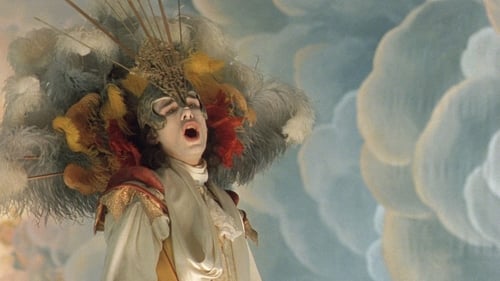
어릴 적 거세를 당한 카를로 브로스키는 거리의 공연에서 명성을 얻어 순식간에 세계적인 성악가로 발돋움한다. 유럽 전역에서 공연을 펼친 그는 자신의 곡을 작곡해 주는 형 리카르도와 함께 옛 스승 포포라를 돕기 위해 영국 런던으로 향한다. 헨델이 국왕의 지원을 받아 운영하는 왕립극장과 경쟁 관계에 있는 노블레스 극장에서 공연을 하는 카를로는 순식간에 모든 관객의 마음을 사로잡고, 왕립극장의 경영을 어려움에 빠뜨린다. 하지만 좋은 음악에 굶주린 카를로는 리카르도와 포포라의 음악에 만족하지 못하고 헨델의 음악을 갈구하게 된다. 그런 과정에서 카를로는 자신의 거세와 어린 시절을 둘러싼 비밀을 알게 되는데...
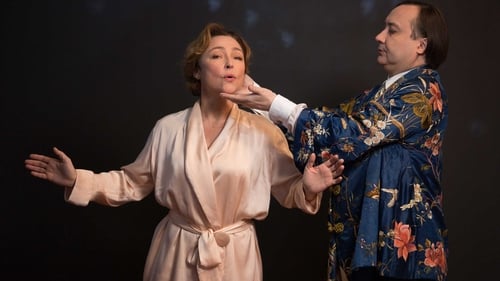
정식 콘서트를 앞둔 소프라노 ‘마가렛트’ 그녀만 모르는 비밀이 있었으니, 바로 최악의 음치라는 것! 1920년 파리. 음악을 사랑하는 남작 부인 마가렛트가 자신이 준비한 자선 음악회 무대에 오른다. 그녀의 노래에 뜨거운 박수를 보내는 손님들, 하지만 이들에게는 숨길 수 없는 비밀이 있다. 바로 마가렛트가 한 번 들으면 잊을 수 없을 만큼 끔찍한 음치라는 것. 하지만 사람들은 부자인 마가렛트와의 관계를 유지하기 위해 그녀가 위대한 소프라노인 것처럼 치켜세운다. 급기야 신문에까지 소개된 그녀의 공연, 이에 용기를 얻은 마가렛트는 정식 콘서트를 열겠다고 선언하는데…
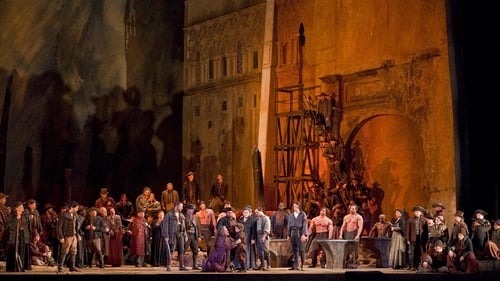
Verdi’s IL TROVATORE again storms the Met stage in a star-studded, anvil-wielding cast , including Sondra Radvanovsky, Dolora Zajick and Dmitri Hvorostovsky. Marcelo Álvarez sings Manrico, the troubadour of the title. The story is well-known already: The gypsy Azucena has harbored a grudge for thirty years, but she is about to have revenge at last. Meanwhile, her son Manrico is in love with Leonora, but so is his arch-enemy, the Count Di Luna. A pot-boiler, where every tune is a hit.

Opera royalty Luciano Pavarotti brings dignity and power to the title role in this 1982 production. During a squall at sea, Idomeneo -- the king of Crete -- swears to Neptune that if the monarch survives, he'll sacrifice the first person he encounters onshore. Tragically, that person ends up being his son, Idamante (Frederica Von Stade). Maestro James Levine masterfully conducts the orchestra and chorus of the Metropolitan Opera. A musical production that was designed for the "Live From the Met" series, this program was produced by Jean-Pierre Ponnelle.

This television essay from 1985 was written by Leonard Bernstein to commemorate the 125th anniversary of Gustav Mahler's birth. Recorded in Israel, Vienna and later in London, it is punctuated by biographical interludes and illustrated by musical examples drawn from the cycle of Mahler's works recorded by Bernstein. Bernstein talks, plays and conducts various orchestras (Israel Philharmonic Orchestra, London Philharmonic Orchestra, Wiener Philharmoniker) and soloists (Janet Baker, Christa Ludwig, Edith Mathis, Lucia Popp, Walton Groenroos) in performances spanning 17 years. Leonard Bernstein also examines the roots of Gustav Mahler's inspiration. The programme also features music from the nine symphonies, 'The Song of the Earth' and the 'Wunderhorn Cycle'.

Emmanuelle Haïm has established herself as one of the world’s leading performers, conductors and interpreters of Baroque repertoire, not only with Le Concert d’Astrée, the ensemble she founded in 2000, but with several of the world’s greatest orchestras. Known for her fresh and expressive approach to Baroque music, she has garnered critical acclaim and several international awards with her own ensemble, including Victoires de la Musique Classique, ECHOs, Gramophone Awards, and Grammy nominations.

Philippe Jaroussky as Ruggiero is in thrall to Patricia Petibon as the sorceress Alcina in Katie Mitchell’s virtuosic production of Handel’s opera from the 2015 Aix-en-Provence Festival, described by Bachtrack as “a night of a thousand delights”. Conducted by Andrea Marcon, this was, in the words of Opera News, “musically … a performance of the highest festival level”. The production of Alcina, by the British director Katie Mitchell, was welcomed by the Financial Times as “meticulously executed …, rich in detail, consummately polished”. As the New York Times wrote: “It involves a huge sorcery machine for turning people into animals (or whatever). And Ms. Mitchell works magic of her own onstage, constantly showing the enchantresses Alcina and Morgana alternating between glamorous public personas and their ‘real life’, older, private selves …There are also bits of simulated sex, mingling genders and suggesting, among other things, inventive new ways to hit high notes.”

Herbert von Karajan conducts La Scala Orchestra and Chorus with soloists Leontyne Price, Fiorenza Cossotto, Luciano Pavarotti, and Nicolai Ghiaurov.

Charles Mackerras teases the romantic beauty from Gounod's score, which has been widely admired since its first performance at the Théâtre Lyrique, Paris, in 1867. In this 1994 recording, the youthful Roberto Alagna as Roméo and Leontina Vaduva as the unattainable Juliette lead an excellent cast in this touching portrayal of impossible love, based on Shakespeare's play.
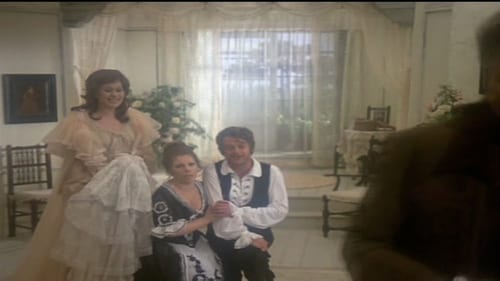
Mozart's Marriage of Figaro is a comedy whose dark undertones explore the blurred boundaries between dying feudalism and emerging Enlightenment. Herman Prey's Figaro is admirably sung in a firm baritone and aptly characterized. So too, is his antagonist, Dietrich Fischer-Dieskau as the Count perpetually frustrated by the scheming wiles of Figaro and Susanna, here the perky Mirella Freni, who sings and acts like a dream. The Countess is creamy-voiced Kiri Te Kanawa, and the Cherubino, Maria Ewing, looks just like the horny, teenaged page she's supposed to be. The all-star leads are complemented by worthy supporting singers, the Vienna Philharmonic at the top of its form, and the experienced Mozartian, Karl Böhm conducting a stylishly fleet performance.

Seeking to exorcise the failure of his current love affair, the poet Hoffmann tells the tales of his three past loves - the doll-like Olympia, the high-class courtesan Giulietta, and the ambitious but delicate Antonia - and recalls how each was thwarted by the evil influence of his rival. In this production by the distinguished film director, John Schlesinger, with spectacular designs by Maria Bjornson and William Dudley, Offenbach's nightmare world is brought to life. The all-star cast is headed by Placido Domingo as Hoffmann: his three loves are Ileana Cotrubas, Anges Baltsa and Luciana Serra and the manifestations of his rival are sung by Geraint Evans, Robert Lloyd, Siegmund Nimsgern and Nicola Ghiuselev. The score, which includes such favourites as the "Barcarolle" and the "Doll's Song", is conducted by Georges Pretre.

"Four Ways to Say Farewell" is a personal introduction to Mahler and his Ninth Symphony, during which Leonard Bernstein is seen and heard rehearsing the Vienna Philharmonic Orchestra. Filmed in 1971, this rehearsal was directed by Humphrey Burton,

From the gorgeous scene deep in the river Rhine that opens the opera, up to the magic Rainbow Bridge that appears at the end, leading to a glistening Valhalla, Otto Schenk’s production captures the scenic world of Wagner’s Ring as brilliantly as James Levine and the Met orchestra capture the musical world. The cast is incomporable: an astounding James Morris as the young god Wotan, the great Christa Ludwig as his wife Fricka, incandescent Siegfried Jerusalem as Loge, the wily god of fire, and Ekkehard Wlaschiha as a complex Alberich.
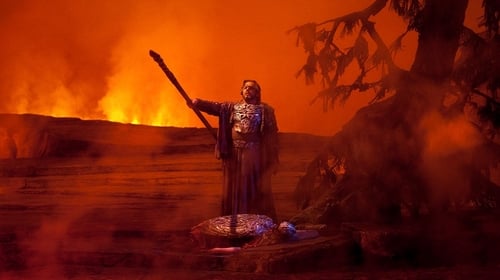
The gorgeous and evocative Otto Schenk/Günther Schneider-Siemssen production continues with this second opera in Wagner’s Ring cycle. Hildegard Behrens brings deep empathy to Brünnhilde, the favorite daughter of the god Wotan (James Morris) who nevertheless defies him. Morris’s portrayal of Wotan is deservedly legendary, as is Christa Ludwig, as Fricka. Jessye Norman and Gary Lakes are Sieglinde and Siegmund, and Kurt Moll is the threatening Hunding. James Levine and the Met orchestra provide astonishing color and drama. (Performed April 8, 1989)

Academician and piano expert David Dubal narrates this absorbing documentary chronicling the instrument's history and featuring some of the 20th century's finest pianists via archival film clips. Among the keyboard virtuosos are Vladimir Horowitz, Claudio Arrau, Van Cliburn and Glenn Gould. Extras include Arrau's 1983 performance of Ludwig van Beethoven's Piano Concerto no. 4, accompanied by the Philadelphia Orchestra under maestro Riccardo Muti.

Natalie Dessay and Rolando Villazón bring Jules Massenet's classic opera to the stage in this dazzling production. In 18th-century France, Manon (Dessay) faces life as a nun, despite catching the eye of many men. When she meets the handsome but penniless des Grieux (Villazón), she falls deeply in love. The pair elopes, but their future together is threatened by outside forces.

Beginning with the First Symphony, Bernstein reveals Mahler's position at the hinge of modernism, while emphasizing his emotional extremism. The uplifting Second "Resurrection" Symphony, with which Bernstein had an especially long and close association, is recorded here in a historic performance from 1973, set in the Romanesque splendor of Ely Cathedral. In the Third, Bernstein encompasses the symphony's spiritual panorama like no other conductor, with the Vienna Philharmonic players alive to every nuance.

It is to composer and librettist Arrigo Boito and his constant pestering of the octogenarian Verdi that there remained within him one last great comedy fighting to get out that we owe this absolute miracle of an opera. Produced in 1893 as Verdi turned 80 there is much in this masterpiece that can be identified as a modernist neoclassical work. The use of short motifs instead of long arioso melodic lines, the spry and reduced orchestral textures and the lack of a single 'stand and deliver' dramatic declamatory aria all serve to make this more of a 20th century work than an example of 19th century late-Romanticism.

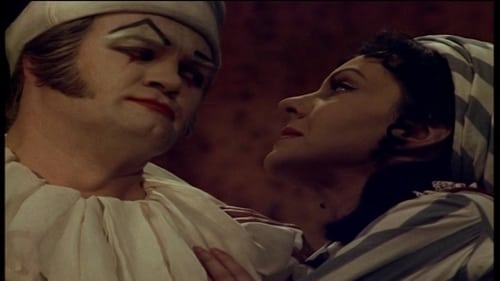
Opera's most popular double bill, fondly known as Cav and Pag, can be a tawdry mess or, as in this performance of Pagliacci, a searing experience. Its power derives from an all-star cast headed by tenor Jon Vickers in the double role of betrayed husband, Canio, and tragic clown, Pagliacci. Hes a singer who blurred the division between reality and stage illusion in every role he assumed, thus taking an opera about that thin line between real life and stage artifice to heightened levels of intensity. Vickers is a force of nature, his big, brawny voice suffused with emotion. Here, his phrasing, textual precision, and timbral colorations expand the scope of the opera, making a moving tragedy out of Leoncavallos verismo melodrama.

Although Domingo was younger and Banackova looked more like the sweet and innocent young Madalena than the one played by Tomowa-Sintow in the ROH production, this production was not as good. It was not as tight and neat. The tempo set was far too slow for the time-period of the story. The stage setting was distracting. The lighting was too dark. Except Domingo, a natural actor who was always into his role and sings and acts with passion, none of the other performers came up with a convincing portrayal of the role he/she played.

Filmed on tour at Berlin's Philharmonie, this account of the valedictory Ninth Symphony is an intense interpretation, expressing Bernstein's conviction that modern man had at last caught up with the message encoded in Mahler's last completed work. Having made his famous 1966 studio recording of "Das Lied von der Erde" in Vienna, Bernstein re-recorded this in Israel with the same searing subjectivity. René Kollo draws on the voice of a great Wagner tenor, while Christa Ludwig, the greatest exponent of the contralto songs at the time, is unbearably poignant in the final movement's fusion of elation and sadness.

For those with any interest in Vivaldi's operas Orlando Furioso is essential viewing, being a 1989 San Francisco Opera revival by Pier Luigi Pizzi of his own 1979 production which was largely responsible for beginning modern interest in Vivaldi's stage work. The composer first premiered Orlando finto pazzo in 1714, but the Orlando Furioso finalised in 1727 was so heavily reworked as to be virtually an entirely new opera, and so successful Handel set the same epic poem by Aristo under the title Alcina in 1735.

